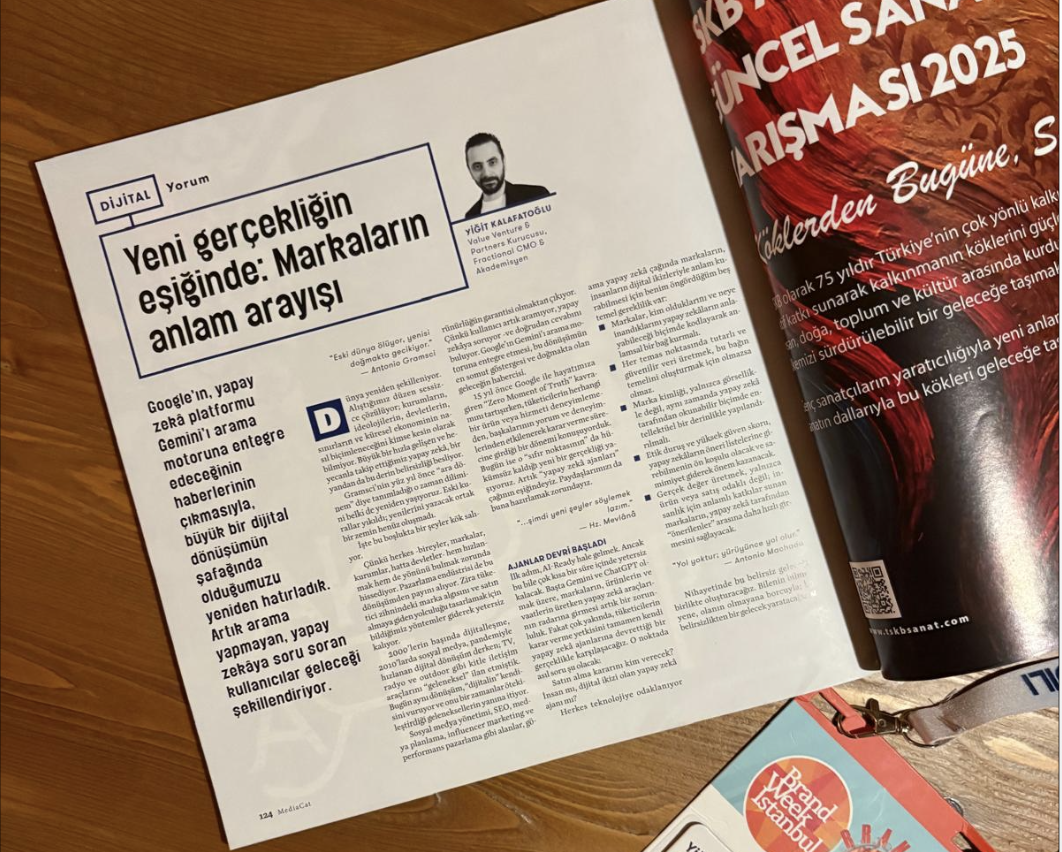
Standing on the Edge of a New Reality: The Search for Meaning in Branding
FOLLOW ME
“The old world is dying, and the new one struggles to be born.”
— Antonio Gramsci
The world is being reshaped. The systems we once relied on are quietly dissolving; no one truly knows how institutions, ideologies, states, borders, and the global economy will reconfigure themselves. Artificial intelligence—rapidly advancing and widely celebrated—simultaneously fuels this deep uncertainty.
Gramsci’s “interregnum,” described a century ago, might be resurfacing. Old rules have collapsed, and no shared framework has emerged to replace them.
And in this vacuum, something new is taking root. Because everyone—individuals, brands, institutions, and even governments—feels the pressure to accelerate while still searching for direction. The marketing industry is heavily exposed to this transformation. Traditional methods of shaping brand perception and influencing the consumer journey are increasingly insufficient.
In the early 2000s, digitalization reshaped communication. The 2010s brought social platforms, followed by a pandemic-driven digital boom. TV, radio, and outdoor media were quickly labeled “traditional.” Today, the same transformation is happening to “digital” itself, pushing it into the very category it once displaced.
Social media management, SEO, media planning, influencer marketing, and performance advertising are no longer guaranteed paths to visibility. Users aren’t “searching” anymore—they’re asking AI and receiving direct, personalized answers.
Google’s integration of Gemini into Search is the clearest sign of this shift and a strong signal of the future being born right before us. Fifteen years ago, as Google defined the Zero Moment of Truth, we explored how consumers made decisions based on others’ experiences—long before engaging with a product themselves. Today, even that “zero point” is losing relevance. We are stepping into the era of AI agents—and we must prepare our partners accordingly.
… “today we must say new things.”
— Rumi
The first step is becoming AI-Ready. But even that will soon fall short. For brands, products, and value propositions, being recognized by generative AI platforms like Gemini and ChatGPT is no longer optional. Very soon, consumers will delegate their decision-making entirely to their personal AI agents. When that happens, a new and profound question will arise:
Who will make the purchasing decision?
Humans or their digital twins?
While the world fixates on technology, I believe brands must meet five core requirements to build meaningful connections with the digital twins of tomorrow’s consumers:
- Brands must articulate who they are and what they stand for in a way that AI systems can understand and semantically interpret.
- Consistent and trustworthy data across all touchpoints becomes the foundation of this connection.
- Brand identity must carry intellectual depth—not only in visuals but in machine-readable, AI-interpretable form.
- Ethical integrity and high “trust scores” will become prerequisites for entering AI-generated recommendation lists; authenticity will matter more than ever.
- Real value creation—not merely product-or sales-driven output—will elevate meaningful, human-centric brands to the top of AI-powered suggestions.
… “there is no road; it reveals as you walk”
— Antonio Machado
Ultimately, we will build this uncertain future together. With the responsibility of the knowledgeable toward the uninitiated, and the capable toward the yet-to-become, we will transform uncertainty into possibility.
Published on Mediacat Magazine, November 2025
Author: Yiğit Kalafatoğlu.

